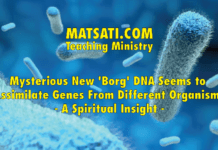Researches from the University of Massachusetts Amherst have recently published their work on the biological mechanism of chytrid fungus which is responsible for a deadly skin infection which is devastating the frog populations world wide. [1] The chytrid fungus is known to infect over 100 species, but susceptibility to disease is highly dependent upon life stage and species. As high as 40% of the amphibian species are in decline worldwide, which is the result of several factors, habitat loss, environmental pollutants, and disease.
References
- Sarah M. Prostak, Kristyn A. Robinson, Margaret A. Titus, Lillian K. Fritz-Laylin, “The actin networks of chytrid fungi reveal evolutionary loss of cytoskeletal complexity in the fungal kingdom,” Current Biology, Feb. 8, 2020, DOI: https://doi.org/10.1016/j.cub.2021.01.001
The fungal pathogen chytrid is formally called Batrachochytrium dendrobatidis, and has emerged as a major threat to amphibians. Amphibians infected with chytrid fungus develop what is called chytridiomycosis, which results in death in the susceptible species. The first documented outbreaks of chytrid fungus occurred in the late 1990s simultaneously in Australia and Central America. Since then the pathogen has been detected in over 100 amphibian species and has been associated with severe population declines or extinctions in several regions throughout the world. As a result, this is a significant work that was recently published. [1] A great deal is unknown about the biology of this pathogen, and is the reason researchers are continuing to study this disease. Now this disease is an external pathogen, and the Chytrid fungi shares features of animal cells. Chytrid fungi attach to the keratinized portions of amphibians, including the mouth on Tadpoles, and the skin on adults. The fungus reproduces by “sporangia (pods where spores are formed) and may be spread by movement of flagellated zoospores leading to direct contact between hosts or between host stages.” As the fungi attaches itself to the keratin layer, this leads to dead skin, lethargy, weight loss, and then death. The fungi results in a disruption of skin function which includes fluid transport and gas exchange.
In the research paper [1] scientists used a combination of genomics and fluorescence microscopy to show the chytrids’ actin cytoskeleton has features of both animal and yeast cells. The fungi spores swim using flagella and then build actin structures on the skin which again lead to failure of the skin transport mechanism of the amphibian (frog). Due to the failure of the basic function of the skin, frogs and toads and other amphibians eventually die of heart failure due to their bodies’ decreased ability for fluid regulation. This disease has been attributed to dozens of population declines over the last 50 years. The research paper describes these actin structures play an important role in the progression of the disease. As the researchers further understand the basic biological cycle of the chytrid fungus, this will hopefully provide insights into the future mitigation of this disease allowing amphibian population growth to increase.
When we lay the scientific research down alongside of Scripture, the Spiritual insights that we receive from this type of work is related to this chytrid fungus mode of contact with the amphibian species. We know that frogs and tadpoles do not have a choice on whether they come in contact with this fungus or not, it all depends upon the environment they are born into, the body of water they live and swim in, etc. This parallels this world and sin, we live in this world and our choices are limited as to whether we are exposed to sin or not. We have choices of course, but there are times such as what we encounter in our culture or on the streets. In California, homosexuality, sex, drug abuse, foul language, etc all of these things happen right on the streets during festivals and even in day-to-day activities depending upon where one goes. I have heard reports of this as far back as the 1980’s. This is not surprising however as the Torah describes these things going on as far back as man has been on this earth (i.e. Sodom, etc).
When we consider God’s Word in the Bible, starting at the beginning, we learn how Israel was eventually enslaved in Egypt. After approximately 430 years the Lord God Almighty sent a deliverer (Moshe) to bring the people out of Egypt and out of Slavery, bondage to both sin and servatude. The Lord God by his grace delivered Israel, brought them through the Red Sea, and to the mountain of Sinai where the Lord God entered into a covenant relationship with the people. It was in a dramatic display of thunder, lightning, fire, and smoke the Lord revealed Himself upon the mountain of Sinai where Moshe ascended and received the ten commandments. He then descended and recited the ten commandments to the people. Upon hearing God speak to them, the people fell back out of fear and asked for Moshe to be their mediator before God.
When Moshe ascended the mountain, he received the Torah from God, including the ten commandments, the image of the Tabernacle (Mishkhan) and all of the sacrificial rites and rituals that pertain to the commands on the instructions of God of which Moshe wrote down known as the Torah. What is interesting about Parashat Mishpatim, is that this Torah portion contains 8.6% of all the mitzvot (commandments) found in the entire Torah (53/613*100 = 8.6%) which pertain to us specifically. Something to note is that 40% of the 613 commands are related to the Cohenim (Priesthood) and the sacrificial rite specifically. The word Mishpatim (משפטים) means “rules” or “ordinances” which is derived from the word shaphat (שפט) meaning “to judge.” Parashat Mishpatim contains many civil and criminal laws, along with financial, family, and ritual laws touching on topics as far as finances, doing good to our enemies, compensation for lost wages, and issues related to man and his fellow man. These were given to produce righteousness and justice in the Land. The Rabbis discuss the topic of the righteousness of God as having offered His commands to the nations (all the world) according to the Talmud Bavli Avodah Zarah 2b.
Talmud Bavli Avodah Zarah 2b
לפניו רבש”ע כלום נתת לנו ולא קיבלנוה ומי מצי למימר הכי והכתי’ (דברים לג, ב) ויאמר ה’ מסיני בא וזרח משעיר למו וכתיב (חבקוק ג, ג) אלוה מתימן יבוא וגו’ מאי בעי בשעיר ומאי בעי בפארן
The nations will say before God: Master of the Universe, did You give us the Torah and we did not accept it? Since we never received the Torah, why are we being judged for not fulfilling its mitzvot? The Gemara asks: And can one say that they were never offered the Torah? But isn’t it written in the description of the giving of the Torah: “And he said: The Lord came from Sinai, and rose from Seir unto them” (Deuteronomy 33:2), and it is written: “God comes from Teman, and the Holy One from mount Paran” (Habakkuk 3:3). And the Sages asked: What did God require in Seir and what did He require in Paran? The Torah was not given in those locations.
א”ר יוחנן מלמד שהחזירה הקב”ה על כל אומה ולשון ולא קבלוה עד שבא אצל ישראל וקבלוה
And Rabbi Yoḥanan says: This teaches that the Holy One, Blessed be He, took the Torah around to every nation and those who speak every language, such as the Edomites in Seir and the Ishmaelites in Paran, but they did not accept it, until He came to the Jewish people and they accepted it. If the other nations all rejected the Torah, how can they excuse themselves by claiming that it was never offered to them?
The rabbis reasoned that the Lord God of Israel was not unfair, but went around to every nation and language and they did not accept the instruction of God. Take for example a well known Jewish Midrash on the Lord offering again the Torah to the 70 nations, the rabbis state that none accepted it without first having asked what its content was. After hearing the various commands, each nation had some kind of excuse for not accepting God’s Torah. The example given by the rabbis is that the Ishmaelites declined after hearing the prohibition of theft since their trading practices required theft. The Lord God then turned to the nation of Israel and Israel replied saying “all that the Lord says we will do.” (Shemot / Exodus 19:8) The rabbinic interpretation of how all of the Torah was given to all of the nations, and only one nation, Israel, accepted God’s instructions is a testimony to the mercy of God. The point is that the nations of the world rejected God’s ways of righteousness, holiness, justice, and truth. This is what it means that God called a nation unto Himself by calling Abraham out from his people and also calling you and me today. Because the nations reject God’s word, we have to be very careful so as NOT to walk in the way of the nations. This is why the prohibition to not learn the way of the nations is so often repeated in the Scriptures.
The commands were given such that people needed to learn how to walk and live according to God’s will and ways. They grew up not in a godless world, but in a world filled with many kinds of gods and man-gods (i.e. Pharaoh). We on the other hand have grown up in a godless society (i.e. atheism) and a sinful world. The Torah describes the people of Israel who left Egypt as a mixed multitude. Like this mixed multitude, we are set in our own ways, and in darkness, we would not know the difference between right and wrong unless we are given the light of God’s Word (the truth of God’s Torah / His Instruction). There is a significant difference here in the nations who refuse God’s ways as opposed to us who want God’s ways in our lives. (Talmud Bavli Avodah Zarah 2b). But as a people who wants to live their lives according to God’s Word who lives in a world that rejects God’s Word, this is what the scientific research on chytrid fungus draws out for us today. These frog species are paralleled to us as living in the world, not having a choice in regards to the family we are born into, and the location on this planet we find ourselves living. In this sense, similar to the frog species, we do not have a choice in this instance as coming into contact with the spiritual disease of sin. We do however have choices no matter where we live or what circumstances we find ourselves in, we can choose to walk in God’s ways of peace, love, and mercy towards others.
When Yeshua was here on earth, he taught Torah in a very unique fashion. In the sermon on the mount, he transcended the “external” requirements of the Torah and forced the issue to be about the inward state of a man. This does not do away with the commands of God, but takes the mitzvot to an entirely different level in our lives. We take for example from Matthew 5:21-22, where he said, 5:21 ‘You have heard that the ancients were told, ‘You shall not commit murder’ and ‘Whoever commits murder shall be liable to the court.’ 5:22 ‘But I say to you that everyone who is angry with his brother shall be guilty before the court; and whoever says to his brother, ‘You good-for-nothing,’ shall be guilty before the supreme court; and whoever says, ‘You fool,’ shall be guilty enough to go into the fiery hell. (NASB) Here Yeshua speaks to one’s thoughts as having the capability to cause one to be guilty before God. As the heart is the source, or the fountain from which our actions pour forth from. Yeshua also said that he gives a new command to His disciples, specifically to love as He loved us (John 13:34). This Torah concept of loving our neighbor (Vayikra / Leviticus 19:18) Yeshua expanded upon stating that we are to draw our lives from his life by walking in God’s commands as he did, laying down his life for others. We note how the Torah functions to reveal our inner condition as our not having the ability to change the nature of our hearts. It is only by the power of God’s presence in our lives (i.e. the Holy Spirit dwelling in our hearts) that we are able to overcome sin. It is the Lord God Himself who is the prime mover in our lives, empowering us to overcome sin in our lives. This is the prophetic meaning given to the prophets of the deliverance to come as the prophet Jeremiah states.
ספר ירמיה פרק לא
ל הִנֵּה יָמִים בָּאִים נְאֻם-יְהֹוָה וְכָרַתִּי אֶת-בֵּית יִשְֹרָאֵל וְאֶת-בֵּית יְהוּדָה בְּרִית חֲדָשָׁה: לא לֹא כַבְּרִית אֲשֶׁר כָּרַתִּי אֶת-אֲבוֹתָם בְּיוֹם הֶחֱזִיקִי בְיָדָם לְהוֹצִיאָם מֵאֶרֶץ מִצְרָיִם אֲשֶׁר-הֵמָּה הֵפֵרוּ אֶת-בְּרִיתִי וְאָנֹכִי בָּעַלְתִּי בָם נְאֻם-יְהֹוָה: לב כִּי זֹאת הַבְּרִית אֲשֶׁר אֶכְרֹת אֶת-בֵּית יִשְֹרָאֵל אַחֲרֵי הַיָּמִים הָהֵם נְאֻם-יְהֹוָה נָתַתִּי אֶת-תּוֹרָתִי בְּקִרְבָּם וְעַל-לִבָּם אֶכְתֲּבֶנָּה וְהָיִיתִי לָהֶם לֵאלֹהִים וְהֵמָּה יִהְיוּ-לִי לְעָם: לג וְלֹא יְלַמְּדוּ עוֹד אִישׁ אֶת-רֵעֵהוּ וְאִישׁ אֶת-אָחִיו לֵאמֹר דְּעוּ אֶת-יְהֹוָה כִּי-כוּלָּם יֵדְעוּ אוֹתִי לְמִקְטַנָּם וְעַד-גְּדוֹלָם נְאֻם-יְהֹוָה כִּי אֶסְלַח לַעֲוֹנָם וּלְחַטָּאתָם לֹא אֶזְכָּר-עוֹד:
Jeremiah 31:30-33
31:31 ‘Behold, days are coming,’ declares the Lord, ‘when I will make a new covenant with the house of Israel and with the house of Judah, 31:32 not like the covenant which I made with their fathers in the day I took them by the hand to bring them out of the land of Egypt, My covenant which they broke, although I was a husband to them,’ declares the Lord. 31:33 ‘But this is the covenant which I will make with the house of Israel after those days,’ declares the Lord, ‘I will put My law within them and on their heart I will write it; and I will be their God, and they shall be My people. 31:34 ‘They will not teach again, each man his neighbor and each man his brother, saying, ‘Know the Lord,’ for they will all know Me, from the least of them to the greatest of them,’ declares the Lord, ‘for I will forgive their iniquity, and their sin I will remember no more.’ (NASB)
We read how a new covenant in the Messiah will significantly affect the outcome of our faith by God writing his Torah upon our hearts. Here we find many concepts coupled together, with God Himself calling a people unto Himself. (וְהָיִיתִי לָהֶם לֵאלֹהִים וְהֵמָּה יִהְיוּ-לִי לְעָם) These things reveal to us how the Messiah Yeshua reveals to us the truth of God. The truth of these things is that for perfect righteousness, not one jot or tittle from the Torah can be left out. This is why Paul wrote so vehemently on the topic of our falling short, or not measuring up the God’s righteousness, even if the Temple was rebuilt in Jerusalem and one was able to fulfill all of the commands, one would never achieve perfect righteousness. Consider the Pharisees in Jerusalem when the temple existed and yet their imperfection remained. This is why we need Yeshua and we need the presence of God in our hearts and lives! This does not mean that one has to be anti-Torah believing in Yeshua. What we understand is what is written according to the Prophet Jeremiah, this new covenant, God Himself will write his Torah on our hearts. Again, there is a heart issue here, something Yeshua was teaching again and again. This is why the fruit of the spirit leads to works of righteousness that are not contrary to the Torah as Paul wrote in Galatians 5:18-25 saying, 5:18 But if you are led by the Spirit, you are not under the Law. 5:19 Now the deeds of the flesh are evident, which are: immorality, impurity, sensuality, 5:20 idolatry, sorcery, enmities, strife, jealousy, outbursts of anger, disputes, dissensions, factions, 5:21 envying, drunkenness, carousing, and things like these, of which I forewarn you, just as I have forewarned you, that those who practice such things will not inherit the kingdom of God. 5:22 But the fruit of the Spirit is love, joy, peace, patience, kindness, goodness, faithfulness, 5:23 gentleness, self-control; against such things there is no law. 5:24 Now those who belong to Christ Jesus have crucified the flesh with its passions and desires. 5:25 If we live by the Spirit, let us also walk by the Spirit. (NASB) This is why Paul wrote that the Messiah is the end-goal or aim of the Torah for righteousness to all who believe according to Romans 10:4. The Torah forces us to recognize our shortcomings before God and the need to reach out to our Father in heaven for help in the name of His Son Yeshua the Messiah! Yeshua instructs us to bear one another’s burdens and to love one another (John 13:34, Galatians 6:2). What the Scriptures teach us is that we do not die to the Torah, but we instead walk it out as a matter of the intention of the heart because the Lord God of Israel Himself is writing it upon our hearts! And as we embrace God’s Word seeking the Lord in our lives, He will work powerfully to help us to live our lives for His glory!









